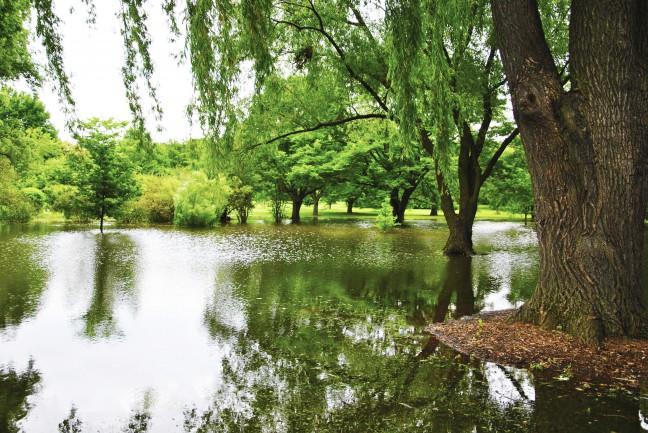The Assembly Committee on Environment and Forestry passed a bill Tuesday that would alter current laws regulating water bodies and wetlands to help restore rights to waterfront property owners.
Under current law, individuals’ requests to dredge or build on wetlands and other water bodies near or on their own properties are heavily scrutinized, Tracy Hames, Wisconsin Wetlands executive director said. Individuals are required to submit alternative options to building through wetlands and a permit is granted only when there are no alternative options available, Hames said.
The bill, proposed by Sen. Frank Lasee, R-De Pere, and Rep. Adam Jarchow, R-Balsam Lake, would make the alternative options proposal requirement less strict. Jarchow said in a statement this protects individual property rights.
“No local government owns your land, no community group owns your land and the DNR sure as heck does not own your land,” Jarchow said. “You own your land.”
The bill would give waterfront property owners the absolute right to build anywhere on their land provided they ensure the water body or wetland near or on their property is not harmed, Jarchow said.
Hames said current legislation requires people to look for alternative options on not just their own land, but also on other people’s properties. The bill would alter this requirement to looking for alternate options only on your own land, Hames said. This means people could build on a wetland or water body if it is the only option on their property, which can be harmful to the water sources, Hames said.
“So it reduces the ability for good planning and will impact wetlands,” Hames said.
Hames said the bill would be harmful because it would encourage people to build developments that are not appropriate for their surroundings. For instance, homeowners could face flooded basements and mildew if they built on land that was previously wetland, Hames said. Hames said the bill would also allow waterfront property owners to dredge three dump trucks of sand or sediment each year.
Kerry Schumann, Wisconsin League of Conservation Voters executive director, said in a statement dredging would destroy fish and wildlife habitats and release toxins that would pollute lakes. Schumann said the bill, also known as “Polluter Grab Bag,” would prevent the Department of Natural Resources from mandating soil testing for toxins before dredging. This would also increase pollution and release more toxins in the water, Schumann said in the statement.
“The Polluter Grab Bag goes right to the heart of the policies that protect our lakes, rivers, streams and wetlands,” Schumann said in the statement. “If passed into law, we’ll see filled in wetlands, dirtier rivers and streams, more development around lakes and less public access to the waters that are supposed to belong to all of us.”
The Senate Committee on Natural Resources and Energy held a public hearing for the bill Wednesday and will vote on it next.



















